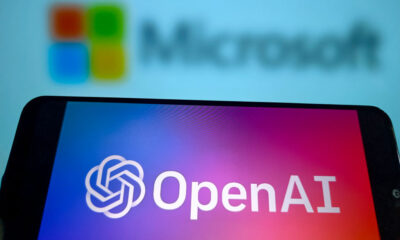Tech News
Microsoft Build 2025: What to expect, from Azure to Copilot upgrades

Microsoft is gearing up for its annual Build developer conference scheduled for May 19 to 22. The event is set to feature announcements on new AI integrations, services, and apps, particularly for Windows.
Last year at Build, Microsoft unveiled the integration of Copilot into Microsoft Teams, Copilot+ AI-powered PCs, and Windows Volumetric Apps for Meta Quest headsets, among other innovations.
The keynote sessions will be available for free online streaming. Expectations are high for Microsoft to introduce deeper integrations of its Copilot generative AI across various software offerings for both consumers and enterprises.
Following price hikes on software products like Windows 365, Office 365, and Microsoft 365 last November, Microsoft may introduce new AI-driven features and capabilities at Build to justify these increases.
Changes to Copilot are anticipated at Build, with reports suggesting Microsoft is exploring alternative AI models from xAI, Meta, Anthropic, and DeepSeek. These models could potentially replace OpenAI technology in Copilot amidst a strained relationship between Microsoft and OpenAI.
On the Windows platform, Copilot may receive enhanced “agentic” functionality allowing it to autonomously perform basic PC tasks. Leaks suggest a new Action button in the Copilot client for Windows that can initiate specific “everyday tasks.”
Microsoft has reportedly developed a family of models known as MAI that rival OpenAI’s offerings, potentially available through an API. Build could be the platform where Microsoft unveils these developments.
Techcrunch event
Berkeley, CA
|
June 5
BOOK NOW
There are also rumors of a potential follow-up to the Azure Maia 100 AI Accelerator, a custom AI chip for Microsoft’s Azure cloud service. Social media buzz suggests a “Maia 2” in the works, with chipmaker Marvell reportedly tasked with its production, as per semiconductor analyst Ray Wang.
-

 Destination8 months ago
Destination8 months agoSingapore Airlines CEO set to join board of Air India, BA News, BA
-

 Breaking News10 months ago
Breaking News10 months agoCroatia to reintroduce compulsory military draft as regional tensions soar
-

 Gadgets3 months ago
Gadgets3 months agoSupernatural Season 16 Revival News, Cast, Plot and Release Date
-

 Tech News12 months ago
Tech News12 months agoBangladeshi police agents accused of selling citizens’ personal information on Telegram
-

 Productivity11 months ago
Productivity11 months agoHow Your Contact Center Can Become A Customer Engagement Center
-

 Gadgets3 weeks ago
Gadgets3 weeks agoFallout Season 2 Potential Release Date, Cast, Plot and News
-

 Breaking News10 months ago
Breaking News10 months agoBangladesh crisis: Refaat Ahmed sworn in as Bangladesh’s new chief justice
-

 Toys12 months ago
Toys12 months ago15 of the Best Trike & Tricycles Mums Recommend






















